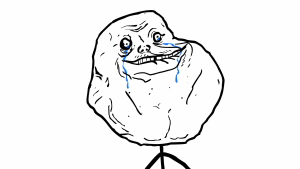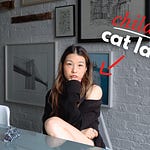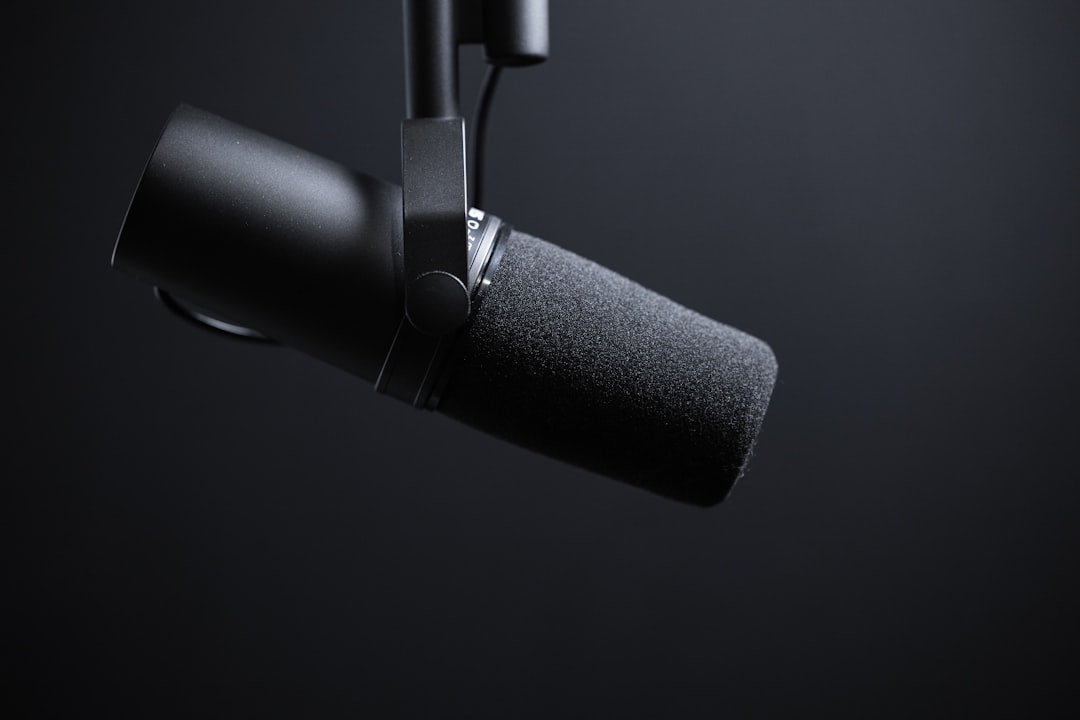That’s it. The headline is the substance: my publisher and I got divorced. That Publishers Marketplace deal announcement I’ve pinned on my social media accounts for the past two-and-a-half years? Archived. The year-and-half I spent writing the first and second and third drafts? Wasted.1
The question I’m sure you’re asking—and I’ve been asking myself nonstop for the past few months—is how the hell did we get here?
Great question.
In the beginning, my writing career seemed downright charmed. Instead of endlessly querying literary agents and receiving rejections or silence (which is worse, really?), I was introduced to an agent by a friend. Instead of banging my head against a wall for years and years, hoping someone would notice my manuscript, I sold my proposal within eight months of quitting my corporate job. I wasn’t even forced to live a broke artist’s life during that time because my one-year sabbatical was funded by aforementioned all-consuming, highly-paid corporate job.
A veritable Cinderella story. I was so goddamn lucky—and I knew I was so goddamn lucky—that in retrospect, I should have expected it all to come crashing down. No one stays that lucky for long.
So it began. My editor left for another publishing house. She’d watched my dumb TikToks, reached out to me when I embarked on my sabbatical to say she believed in me and was interested in my potential book—believed in me before I believed in me. The departure wasn’t personal, of course not, but I was devastated all the same. She was the closest I had to a creative partner.
Industry insiders assured me, This type of thing happens all the time. My publisher told me, We’re still here for you and your book.
At the time, I let myself cry for exactly four days—and then got right back to writing. Life is full of change and uncertainty, I reminded myself. I repeated the Serenity Prayer. And I focused on the only portion of this whole process within my control: the pages I was writing.
I’d later learn that in publishing parlance, books in these situations are called “orphaned books.” As in:
Recent industry news has been filled with reports of editors and publishers changing houses or even leaving to work on their own. When an agent reads those reports, it is often with a deep groan. Another book orphaned at a publishing house.2
So my book was an orphaned book—and I, an orphaned author. Despite how ominous and Dickensian “orphaned” sounds, I didn’t mind adoption. I’ve always been bearish on blood relations and bullish on chosen families. I couldn’t wait to share my vision with someone new, someone who might come to love my fledgling book as much as I did.
Throughout the next twelve months, my new editor and I got to know each other. We talked about books we admired, books I could learn something from—white-collar memoirs like Private Equity (hedge fund) and Exit Interview (tech, specifically Amazon); the genre-straddling and luminous Lab Girl (botany); even Crying in H Mart. We bonded over how books give us the vocabulary to process life experiences. I was so invigorated by our conversations and my readings that I rewrote my entire manuscript for my second draft and rewrote substantial portions of it for my third. I wanted it to be perfect.
I was blindsided, then, when a month before my final draft was to be delivered, I got the news from my agent: They can’t publish the manuscript in the direction you’ve taken it. They want a more prescriptive book (i.e., self-help), something grandparents and parents can buy for their children.
I felt like someone shoved salt in the valley between my eyes—the large, rough flakes sown onto pavement when it snows, not delicate tinsels of table salt. I thought I’d given them what they—nay, we—had wanted.
A couple days later, my rectangular box floated amidst three other rectangular boxes on my computer monitor. We were there to talk about the future of my book. Everyone was exceedingly nice. Sometimes these things just happen, they said. It doesn’t help when the acquiring editor leaves. I nodded and dug my thumbnail against my cuticles, willing myself not to cry in front of everyone. When the video call ended, I let myself bawl.
At this point, I should have wiped my tears and regrouped to figure out what to do next. Instead, I dug deeper into my open wound, the way I do after every break-up—scrolling through my emails, trying to pinpoint exactly when our visions of our future diverged, how I could have avoided or fixed this.
Maybe it was when I offered to do a complete rewrite for the second draft—I should have stuck to the direction of the first draft. Something about your first instinct being your best? Or maybe I should have sent over chapters of my third draft every two weeks, like I’d done for my second draft. Wasn’t I always telling people to err on the side of over-communication? It was my fault for not following my own advice.
Or—what if? I was overcome with sticky, viscous shame, the sensation of trickling period blood. It seeped into my spinal fluid, staining my stem cells, imprinting the subsequent specialized cells making up my lips, fingernails, toes.
What if the real reason they can’t publish my manuscript is because after reading it, they now know I’m a bad person?
This wasn’t the first time I had this worry. After I sent my second draft out, I got stomachaches worrying that my beta readers would conclude that I was a Bad Person. I’m still convinced that the several beta readers who never ended up sending me comments think I’m Satan’s spawn, persona non grata.3 And now, here was paranoid speculation—interpreted as incontrovertible proof—that they were absolutely correct.
Somewhere else in the world, a lover recoils from his sweetheart after asking for her deepest, darkest secret. Not that dark, not that deep. Elsewhere, a tourist is delighted to spot a durian stand, initially running towards the “exotic” fruit vendor only to stop short, grimacing. What was that smell?
Personal writing is, well, personal. Because of that, it’s hard not to encode rejection of the writing as rejection of the person, as well. Even though I know we should all know that one single break-up doesn’t mean you’re forever undateable, I don’t really know that, you know? No one can really know, you know? The road to Forever Alone, after all, is paved with innocuous rejections.
That’s the fallout I’m dealing with now: despair like a fissure in my chest, branching like the etymology of shame. From Old English, scamu, a “painful feeling of guilt or disgrace; dishonor, insult, loss of esteem or reputation.” Also Proto-Germanic skamo, likely from skem, meaning “to cover,” and Old Norse kinnroði, “cheek-redness.” I am flushed in the face, wishing I could hide, dishonored and disgraced.
It’s the age-old question: is it better to have loved and lost than never to have loved at all? On my brightest days, I am grateful for the time and experience of writing a book—because I did write several book-length manuscripts, even if they won’t see the light of day—and tell myself none of it will go to waste. Even Chappell Roan and Destiny’s Child (then simply Destiny) were dropped from their labels!
But on my darkest days, I wonder how was I ever stupid enough to believe I had a place in this world beyond squeezing into the negative space left by others. I should have never left China, the kitchen, Biglaw, the womb, etc. I should go back to where I “belong.”
Then I remember. There is at least one person who cares about what I want to say: you, reading this, right now. And if you are here, and I am here, then surely there must be others like us and we cannot be alone. It’s not quite belonging, but perhaps it’s enough. ◆
Errant Thoughts
As bad as I feel, I feel even worse about the stories and perspectives shared with me by the 60+ interviewees I spoke with for the book. The highs and lows they shared! The problems and solutions identified! I feel responsible for ensuring that their voices become known, that I honor their time and experiences.
What’s next? I’ll be revising my manuscript and writing a new book proposal to shop around to publishers. Check out my (first lol) book deal vlog for what that process was like.
One of my first panics was whether I’d have to make like Caroline Calloway and start an OnlyFans to repay my advance. I’ll be sharing more about the financial consequences of a publisher divorce in next week’s newsletter (for paid subscribers only), but the short answer here is, thankfully, no.
My second panic was that my agent would drop me, and I’d become one of those cautionary tales in publishing like the sci-fi/fantasy author who was caught Goodreads review-bombing other sci-fi/fantasy debut authors. Hello, catastrophizing!
During my weeks away from thinking about this whole situation, I began writing a short story (maybe novel?) for fun. I still think the boundary between fiction and nonfiction is somewhat artificial—the best of each genre contain elements from the other—but I admit writing fiction felt more like play in light of the circumstances. I’d love to eventually publish in both fiction and nonfiction, but it’s a daunting prospect when most authors can’t earn a living anymore from books alone.
Thank you for reading debrief! If you enjoyed this post, consider upgrading your subscription or sharing this post:
Becoming a paid subscriber gives you access to my inner sanctum—essays and private podcast episodes on nascent ideas—as well as archival posts older than six months. Subscribing also helps ensure that my informational and educational video content on all other platforms remains freely available to all.
Please know, though, that having you here and being able to be in conversation with you is the most important thing to me. If you are a student without disposable income, un-or under-employed, or a minimum-wage worker, just email me or fill out this form and I’ll comp you a free subscription, no questions asked. If you’d like to donate one of these subscriptions, you can do so here.
I know that’s an unhealthy perspective on time and reads telic qualities into what should actually be an atelic activity, but let me have this moment of frustration before we wrap it up neatly in therapy speak, okay?
For more on the phenomenon of getting orphaned, this undated column—which I imagine to be quite old, given how the formatting of apostrophes has aged—gives a much more humorous explanation than I ever could.
Interestingly enough, persona non grata is also the term used by Brad Karp, Paul Weiss’s chairman, in his letter to the firm detailing why he struck a deal with the Trump administration. The firm, according to him, was unlikely to survive if it were perceived as persona non grata by the Administration. I’ll be writing about his letter—and the larger phenomenon of Biglaw firms capitulating to the Trump administration—next month.
















Share this post